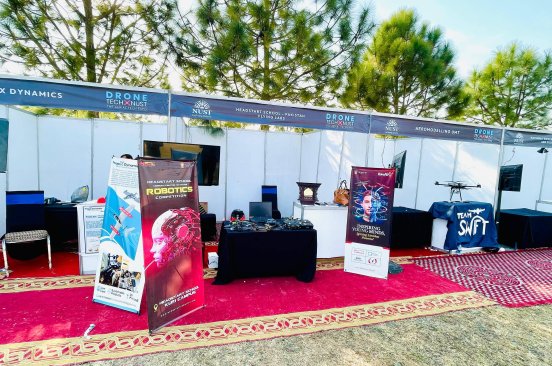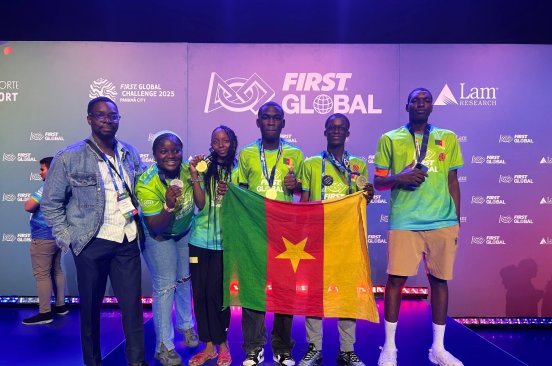
Empowering South African Youth to Thrive Through the Fourth Industrial Revolution
Targeting rural school children and unemployed youth, the workshops aimed to familiarize them with technologies such as drones, AI, VR, and 3D printing.
June 8th, 2023
According to the U.S. Bureau of Labor Statistics, occupations in STEM are projected to grow by 8.0 percent by 2029 compared to the 3.7 percent growth for all other fields. In light of this, the Fourth Industrial Revolution (4IR) not only introduces us to novel domains such as Artificial Intelligence (AI), Robotics, Gaming, Drone technology, and 3D printing, but it also offers a promising opportunity to combat unemployment and incorporate digital technology into our education system. This is imperative to equip future generations to face the rapidly evolving industrial landscape.
In South Africa, there's a pressing need to enhance Science, Technology, Engineering, Arts, and Mathematics, collectively called STEAM education. Data from the National Science and Technology Forum (NSTF) confirms this necessity, indicating that university graduation rates for STEAM-related courses are around 20 percent. This highlights a profound need for advanced skills in these critical areas.
Recognizing this urgency, South Africa Flying Labs and QP Drone Tech partnered with UNICEF-SA, UNICEF-Unlimited Generated, and the Chemical Industries Education and Training Authority (CHIETA) to pioneer more than ten 4IR workshops across seven of South Africa's nine provinces. Our primary goal is to empower rural school children and unemployed youth by exposing them to emergent 4IR technologies.
The workshops aimed to familiarize the participants with various technologies, from drones and AI to Virtual Reality and 3D printing. We also covered game simulation, Robotics, and potential career paths in the tech sphere. Our shared vision of preparing young minds for future careers, particularly in coding and Robotics, motivated our strategic partnership with UNICEF-SA.
The World Economic Forum predicts that 65 percent of children starting primary school today will eventually work in new jobs that don't currently exist. This underlines South Africa's urgency to prepare itself for the 4IR era. In our recent workshops, we reached 744 learners, with girls making up the majority. We aim to close the digital divide by targeting rural children and girls and challenge male dominance in the tech sector.
We recognize the need to augment the existing curriculum with access to advanced technologies, particularly in rural and underprivileged communities. Simultaneously, we're dedicated to enhancing teachers' skills to better equip them to assist learners.
In the face of rising youth unemployment in South Africa (59.6 percent for ages 15-24 in Q3 2022), our initiative strives to equip school children and unemployed youth with the skills necessary for this digital transformation era. Testimonials from our attendees, such as Ms. Raoboka Kgonothi from Limpopo province, reveal the excitement and inspiration these workshops evoke, opening up worlds of possibilities they never knew existed.
Appreciative of the enthusiastic responses, we at South Africa Flying Labs and QP Drone Tech plan to extend these workshops to educators, community leaders, executives, and decision-makers. We want to broaden the impact and drive a more profound understanding of 4IR technologies.
We thank our strategic partners, CHIETA and UNICEF-SA, educators, community members, municipalities, government, facilitators, and most importantly, the learners. Your participation and support have been instrumental in bringing our vision to life. But the journey doesn't end here; the demand for 4IR workshops signifies our impact and the potential for much more.
Category(s)
Location(s)
Recent Articles
View All »

Team Cameroon's Road to Victory at the First Global Robotics Competition 2025
